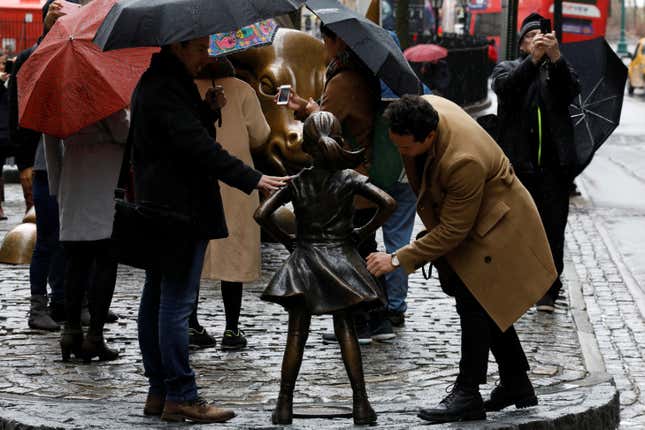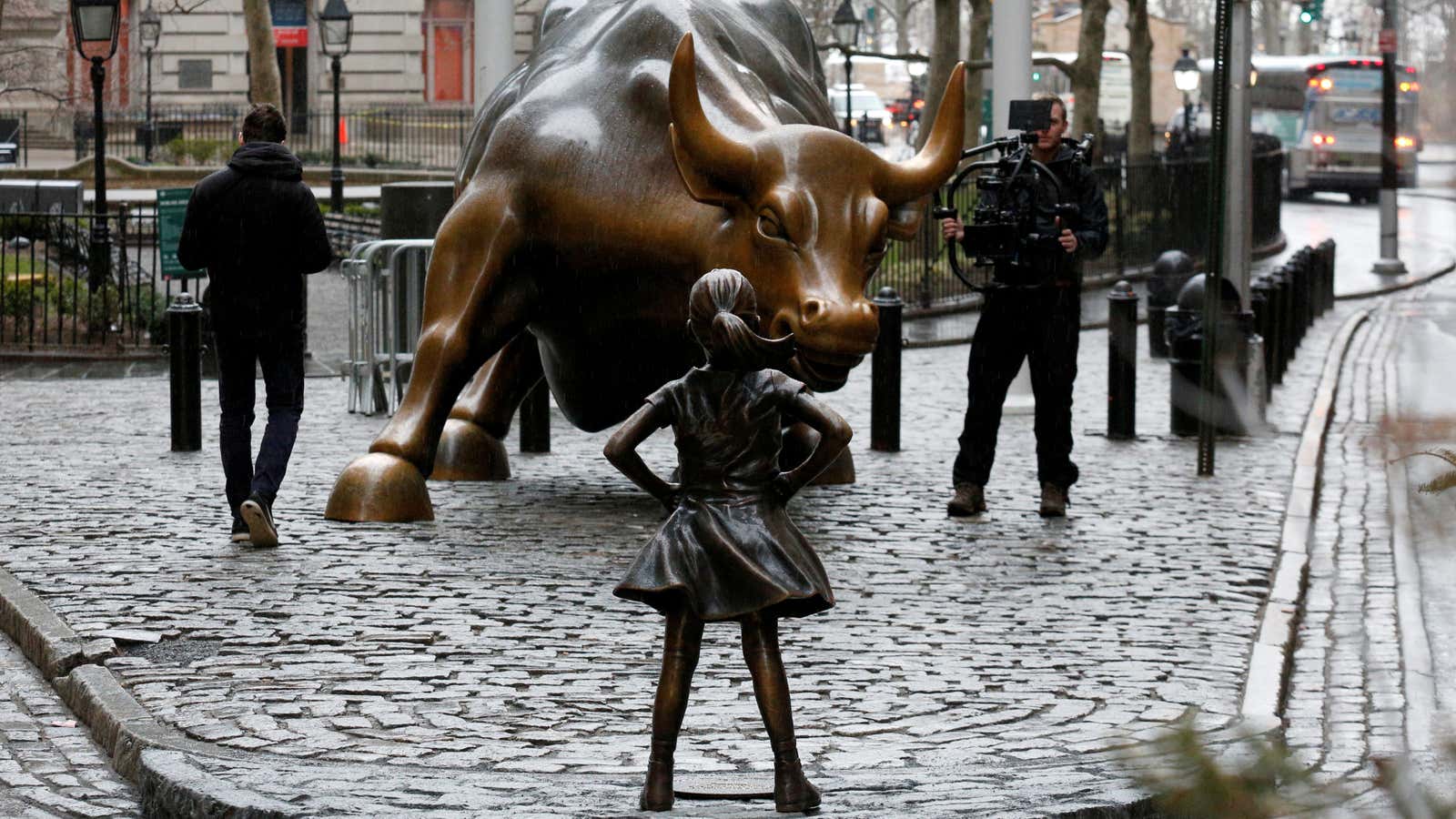On a December morning in 1989, New Yorkers woke to find a new fixture in their city: A bronze sculpture in the shape of a bull, installed overnight by a rogue artist.
Nearly three decades later, on March 7, New Yorkers woke to find that the iconic “Charging Bull” of lower Manhattan has company: A defiant young girl, feet planted firm with arms akimbo.
The new sculpture, by Kristen Visbal, was installed by asset management group State Street Global Advisors, in a bit of clever marketing well-timed for the March 8 celebrations of International Women’s Day. It makes for a great photo op, and sends an important message about female empowerment. But the story of how it got there epitomizes a problem that has long held women back in the workplace.
The original bull was stealthily placed at the New York Stock Exchange by sculptor Arturo Di Modica. The Italian artist wanted the bull to celebrate the “virility and courage” of the American people after the 1987 Wall Street crash. The NYSE removed the bull the afternoon after it was put up, but the sculpture had garnered enough media attention that Arthur Piccolo, chair of the Bowling Green Association, had taken notice.
He enlisted the help of New York’s then-mayor Ed Koch and parks chief Henry Stern, and together the three men intervened to give the bull a permanent home at Bowling Green, an historic patch of land at the tip of Manhattan island, just a few blocks from Wall Street. The Charging Bull quickly became an icon of the city’s financial district, and of the markets themselves.
The new statue, in contrast, was erected with consent from the city. No act of guerrilla sculpture, it is a feel-good public relations stunt, the artistic embodiment of a corporate campaign to address gender inequality in corporate leadership positions. And it got there by asking permission first.
The simple act of getting permission is emblematic of a need, shared by many women, to have 100% approval rather than boldly striding forth with an idea.
More than one survey has shown that women won’t apply for jobs they’re not certain of being completely qualified for. A KPMG 2015 survey asked women about the lessons they learned growing up. At the top, 86% responded “be nice to others,” and 85% learned to “be respectful to authorities/elders.” Near the bottom of the list: “Share your point of view.”
The girl symbolizes the future, says the group in a press release. That may be so, if the future looks like the past—with girls who are taught to ask for permission, rather than acting first and getting forgiveness later.

The new statue already seems to be captivating tourists and passers-by in New York’s financial district. Will city authorities rally on her behalf as they did three decades ago for the bull she’s now staring down?
“We’re actively pursuing that it stays for a month,” a spokesperson for State Street told Reuters. ”If the city decides that it should stay in perpetuity, we’re absolutely on board with that.”
